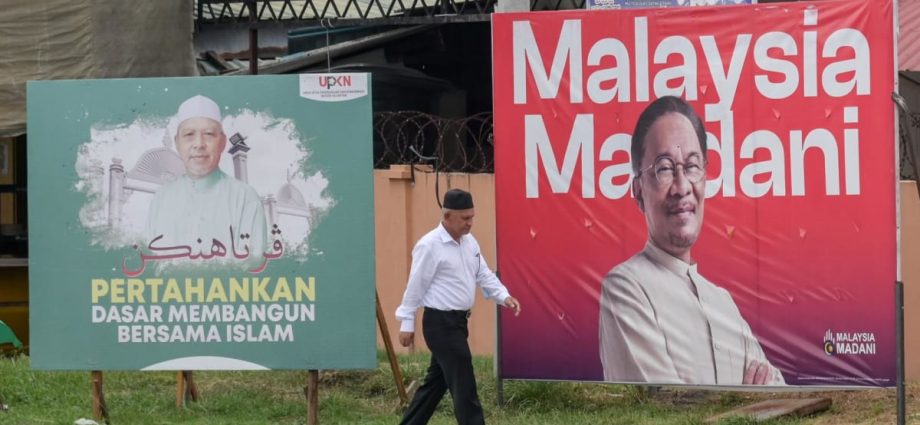
CENTRALISED POLITICAL POWER
For a long time, political power in Malaysia has been largely centralised at the federal level. The few states governed by the opposition were regularly denied resources, both financial and central support for their economic programmes.
During Dr Mahathir Mohamad’s first stint as prime minister heading the Barisan Nasional (BN) government, for 22 years beginning in 1981, the states of Kelantan and Terengganu were denied royalty payment from oil and gas extracted from the states by national oil corporation Petronas.
Kelantan fell to the opposition in 1990, becoming a PAS stronghold since. PAS wrested control of Terengganu in 1999 and suffered a similar fate from the Mahathir government at the time.
But things were shaken up after the 2018 general election when BN was ousted from power after ruling for six decades, starting a chain of events that pushed Malaysia into a prolonged period of political uncertainty. Power changed hands three times before the 2022 general election.
It also led to a shakeup in how elections were carried out. All states, except Sabah and Sarawak, traditionally synchronised their state assembly elections together with the national polls, but only three states did so in November 2022.
WHAT IMPACT DO STATE ELECTIONS HAVE ANYWAY?
The uncoupling of state and national polls has stirred a separate debate. While opposition politicians argue that the ability to dictate the timing for the state polls grants them greater autonomy, in reality it allows the federal government with all the resources at its disposal to overwhelm regional political entities.

